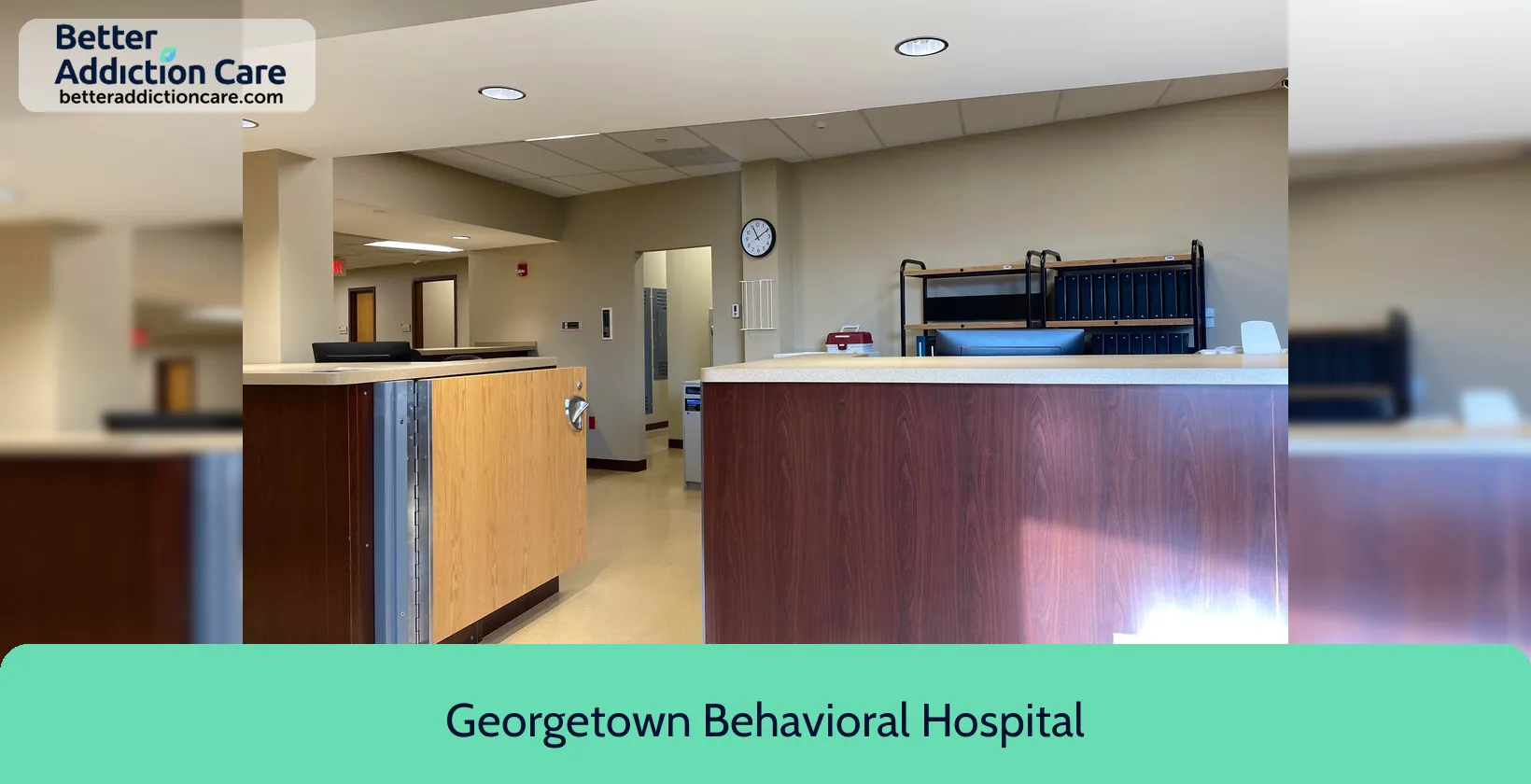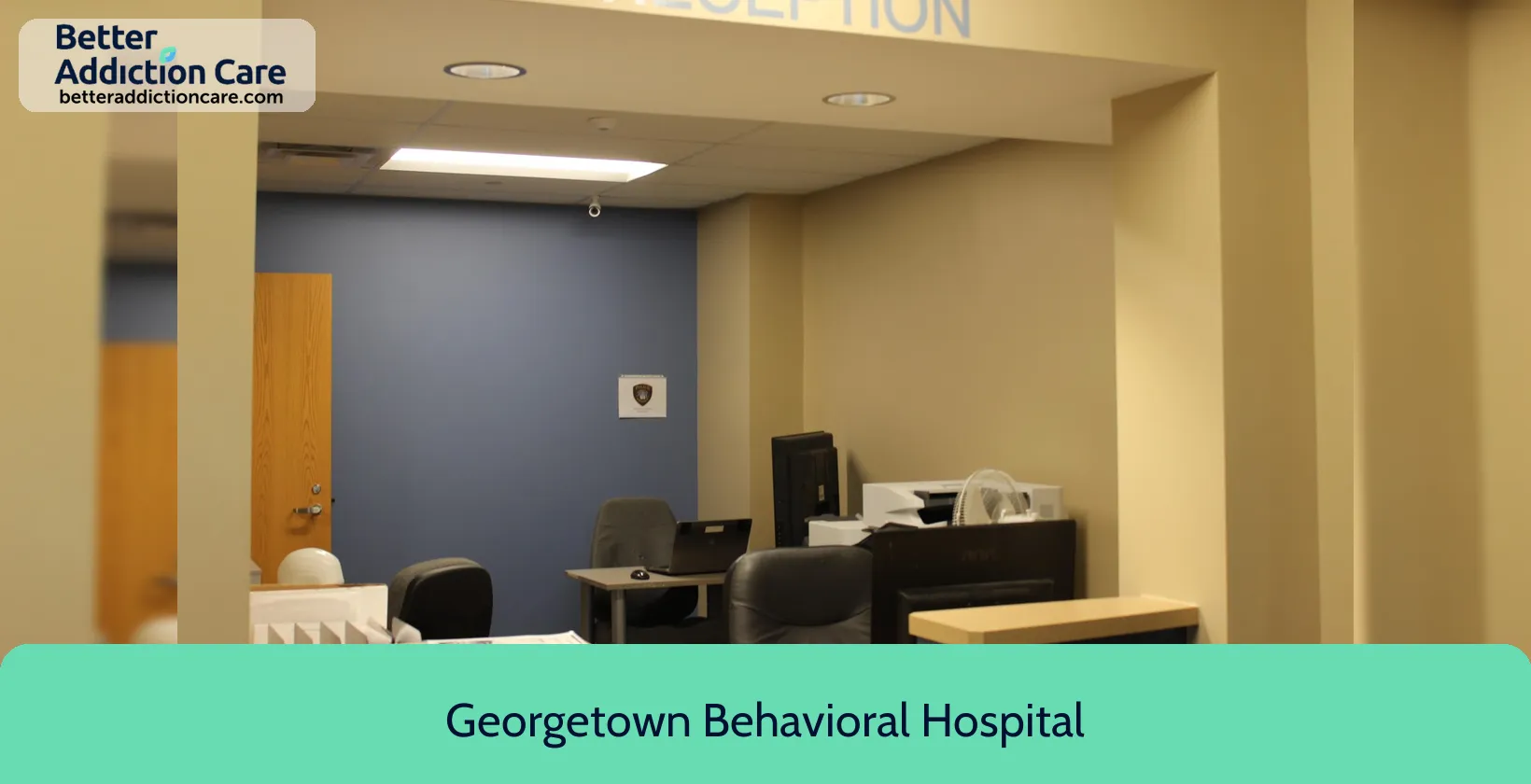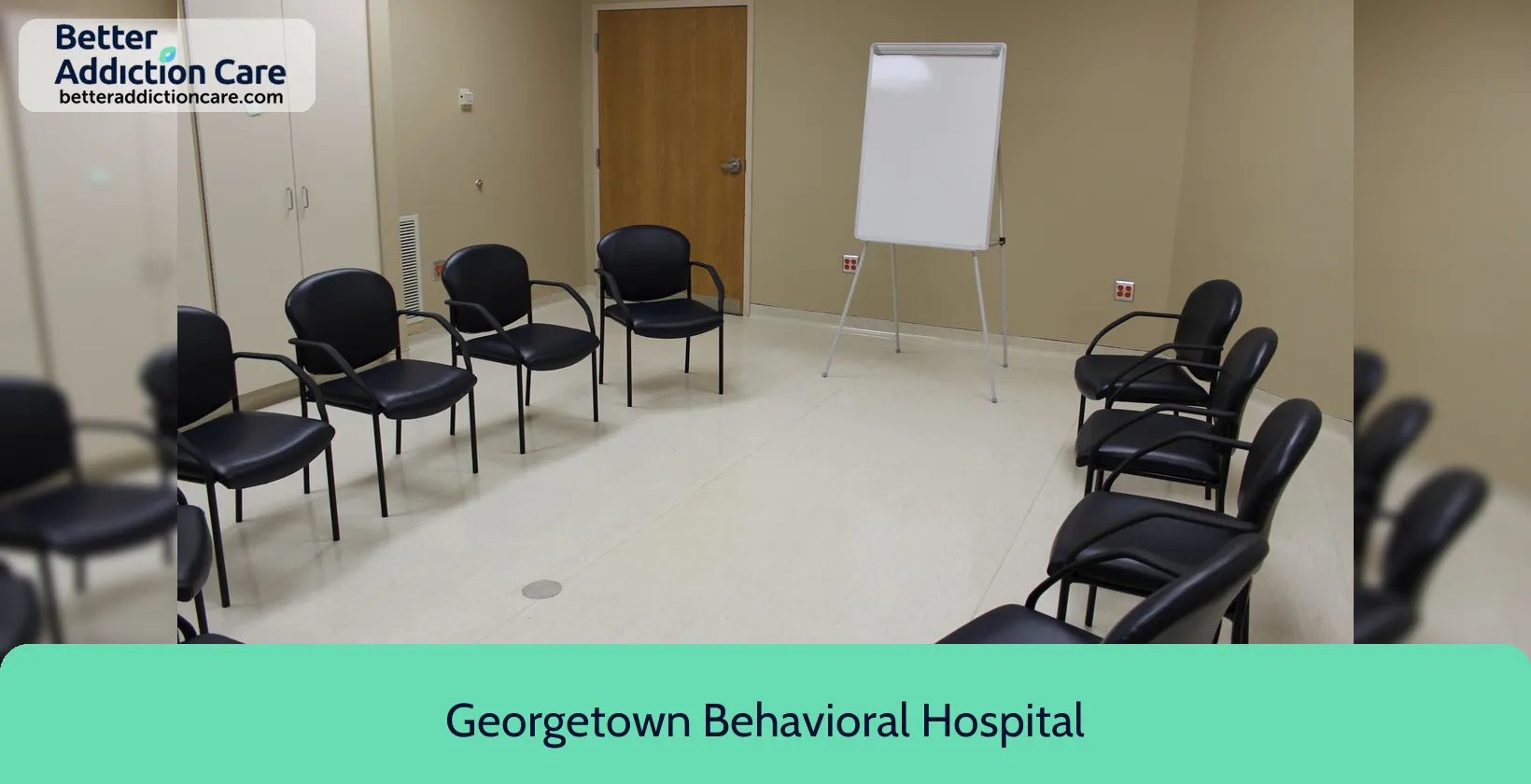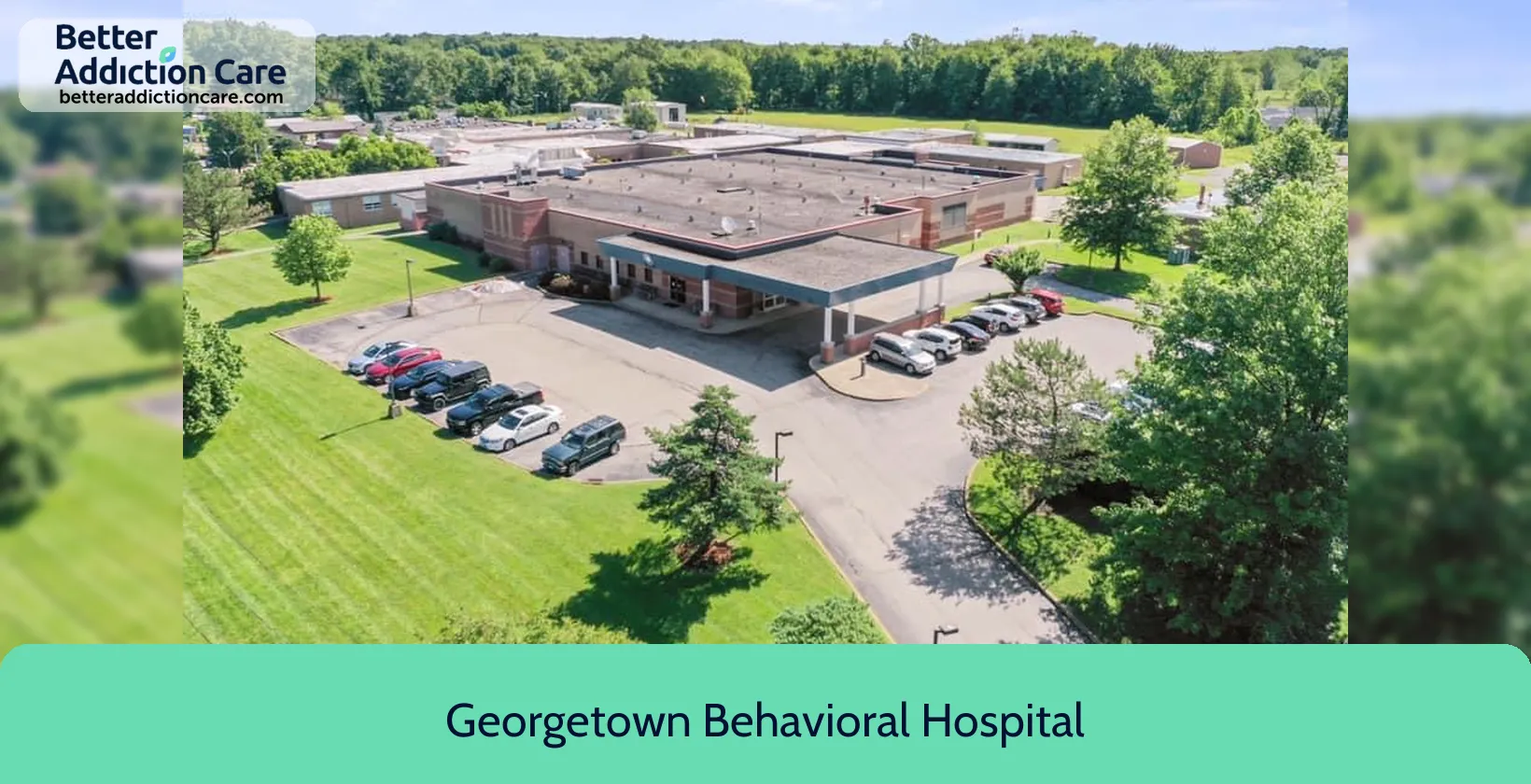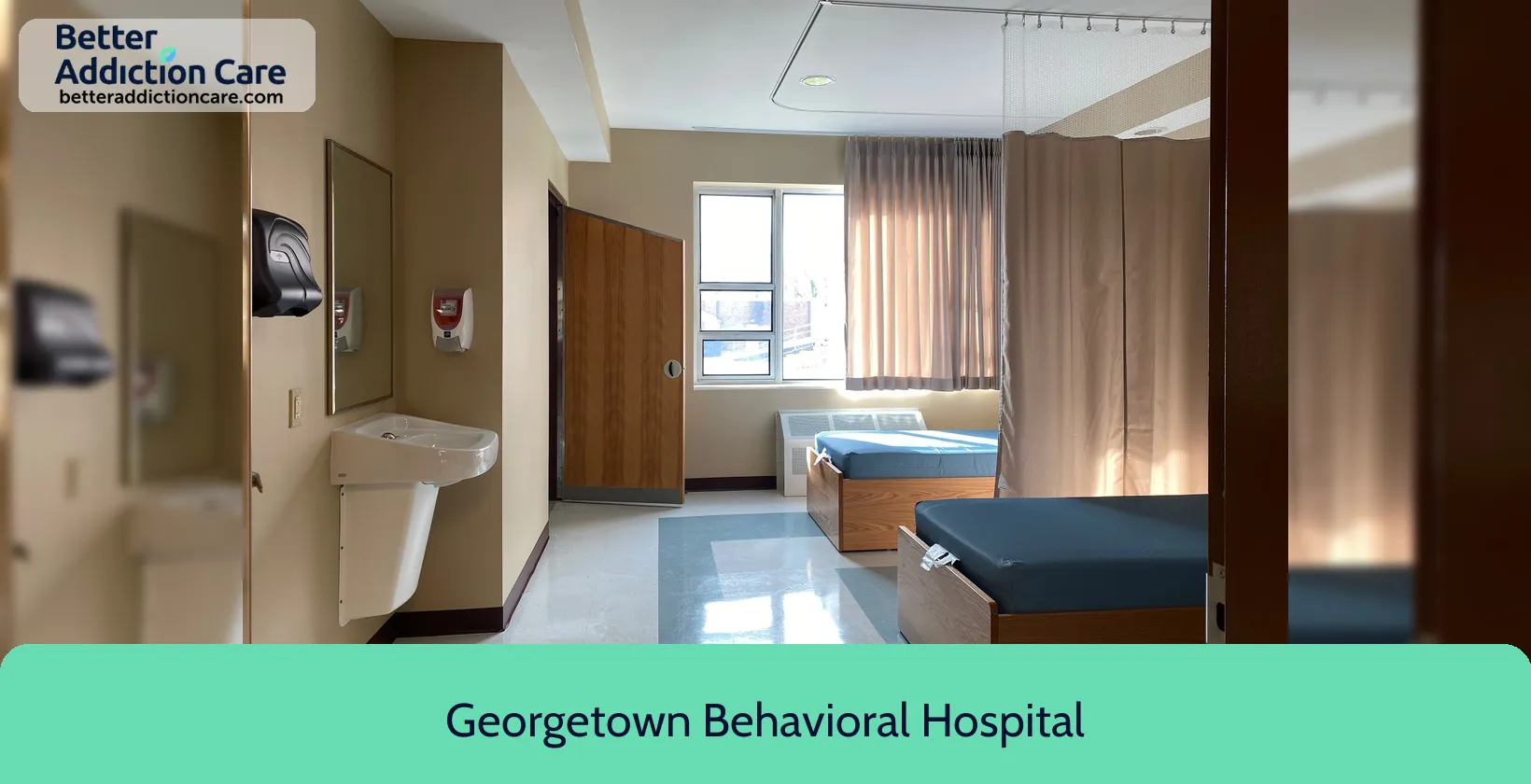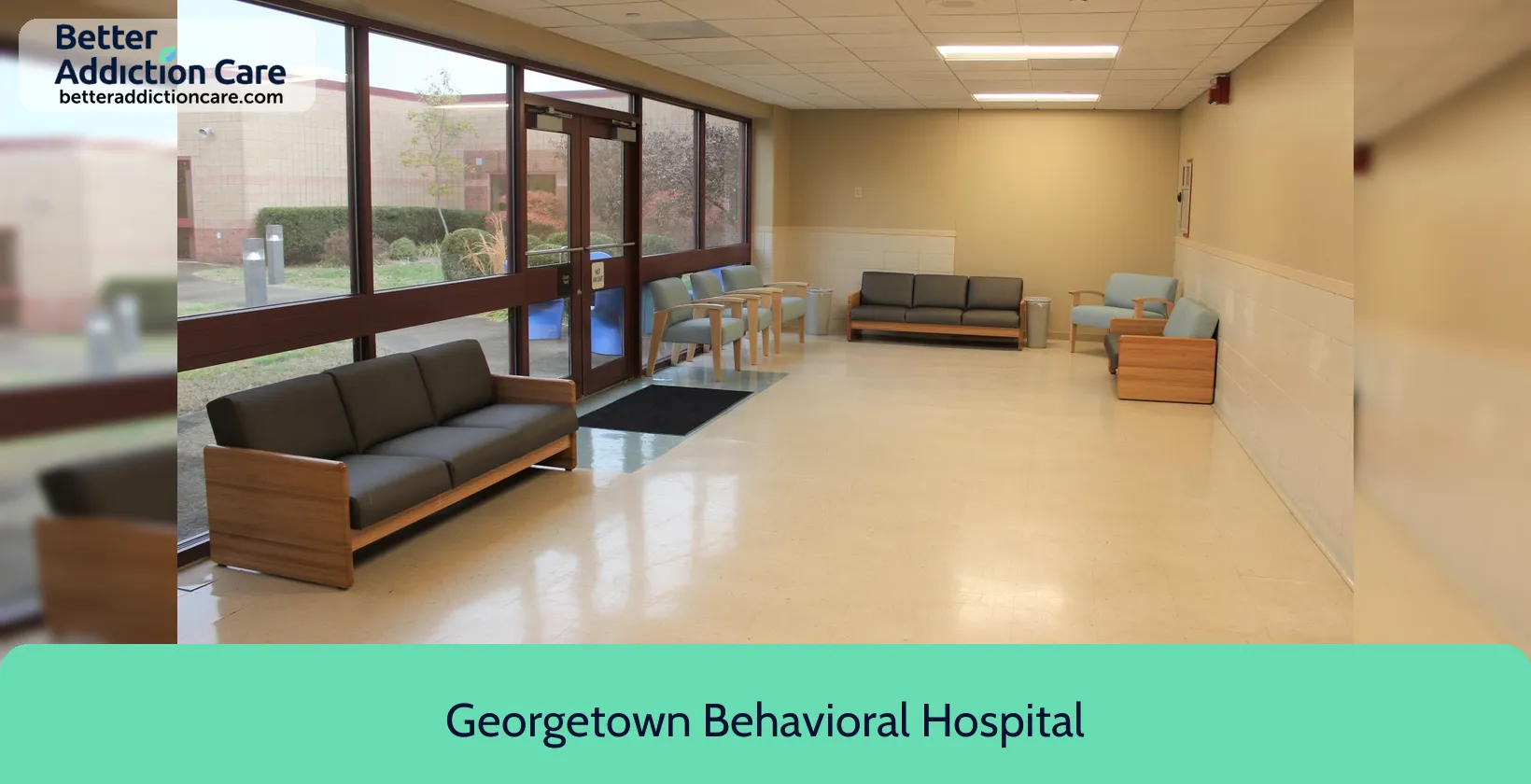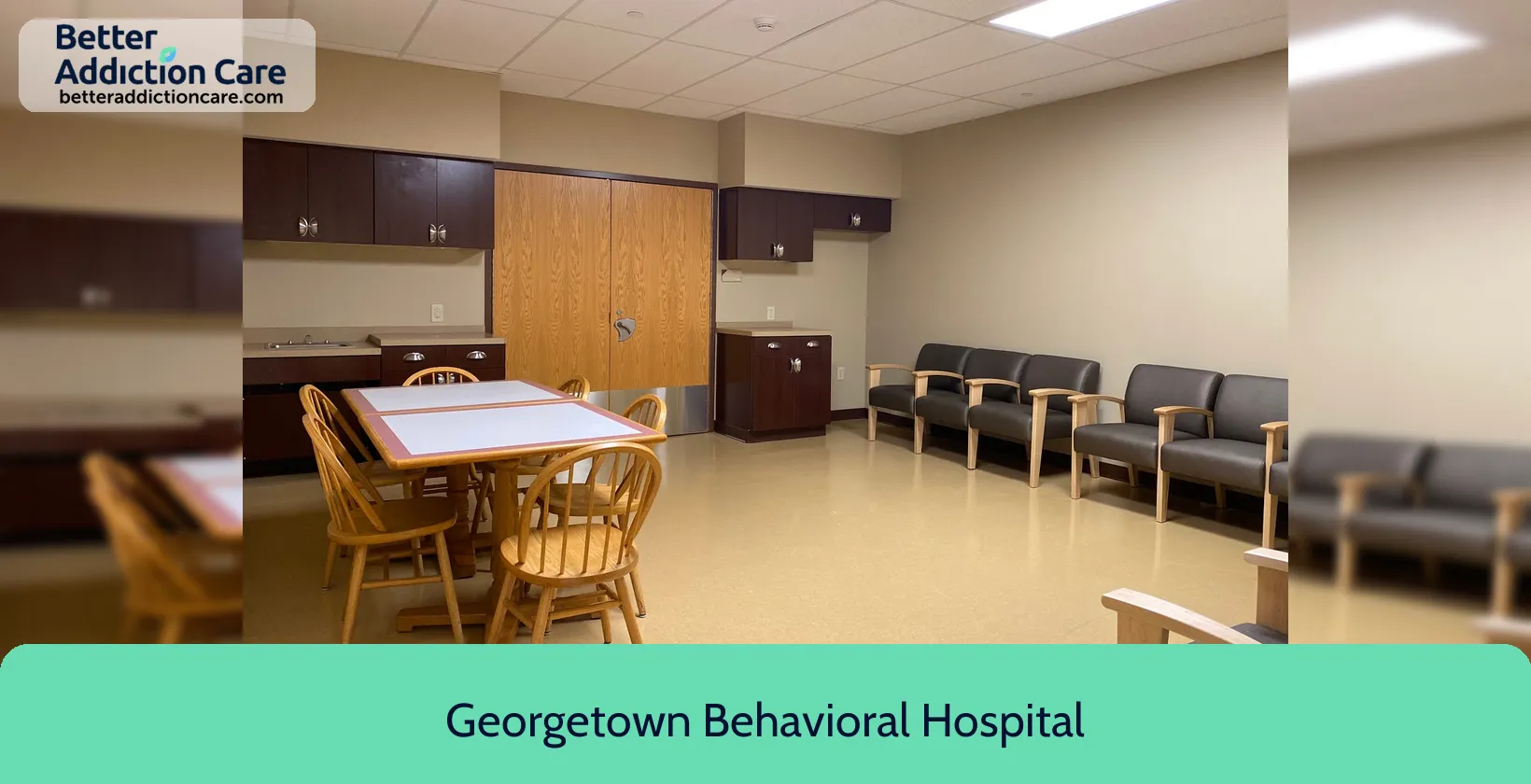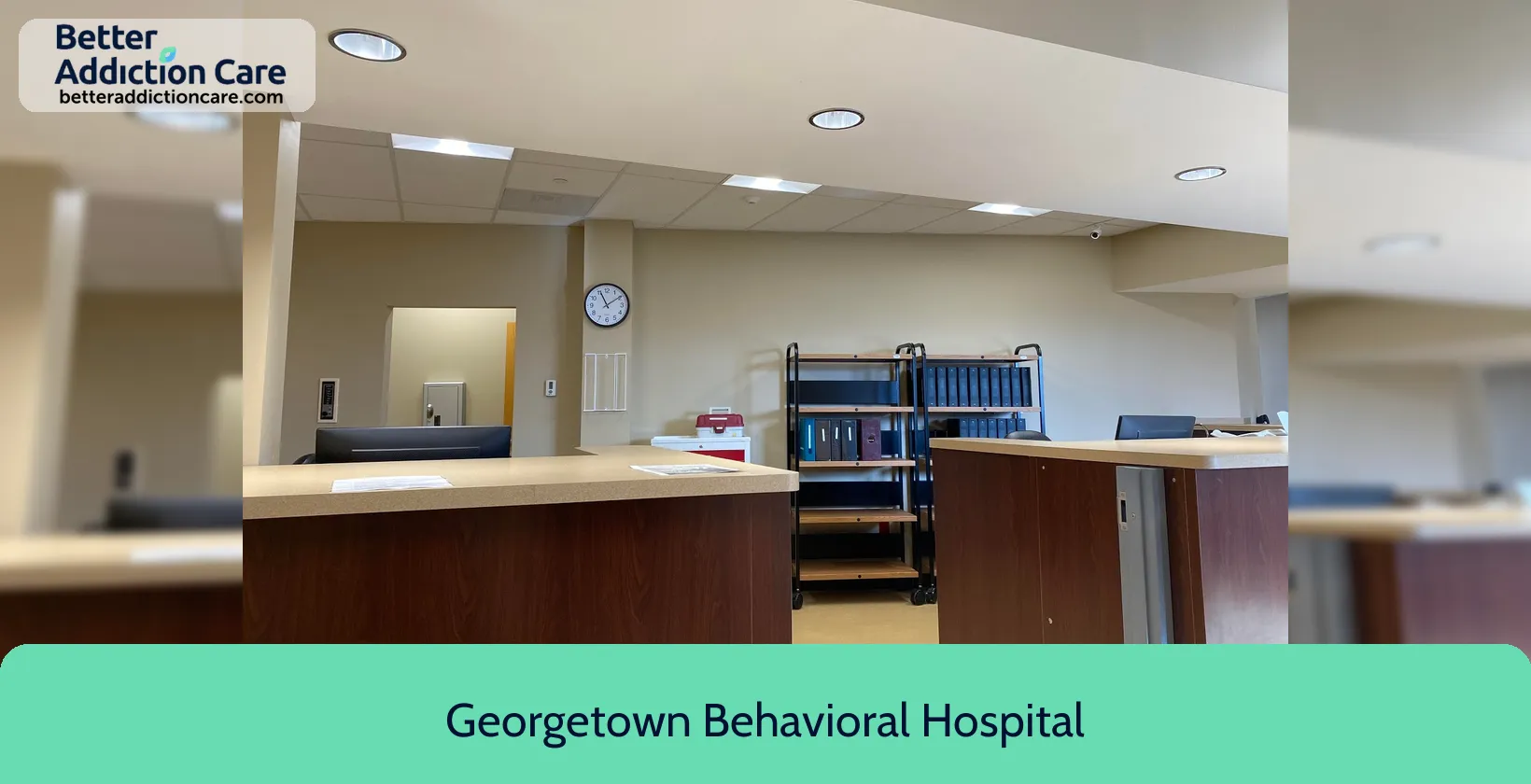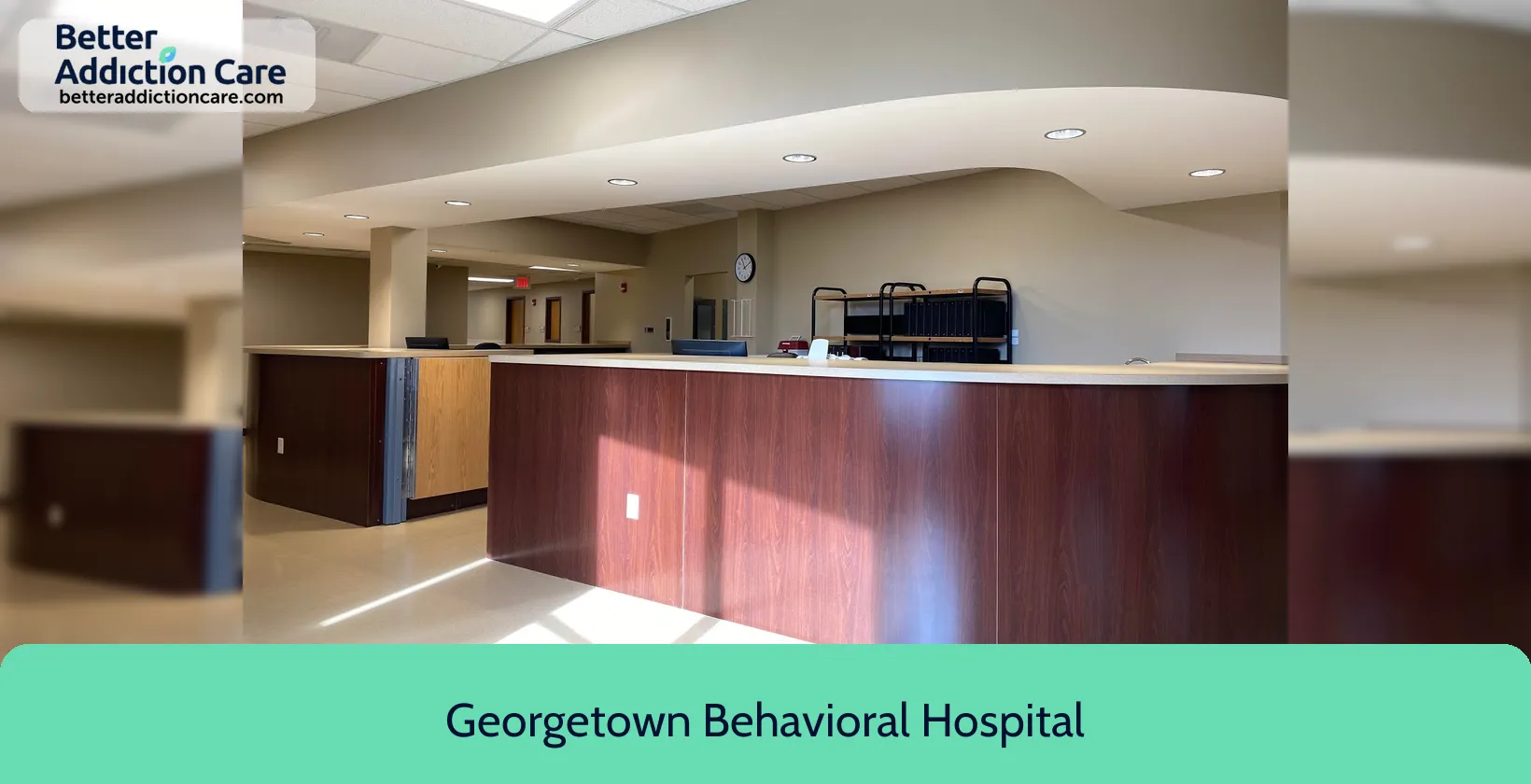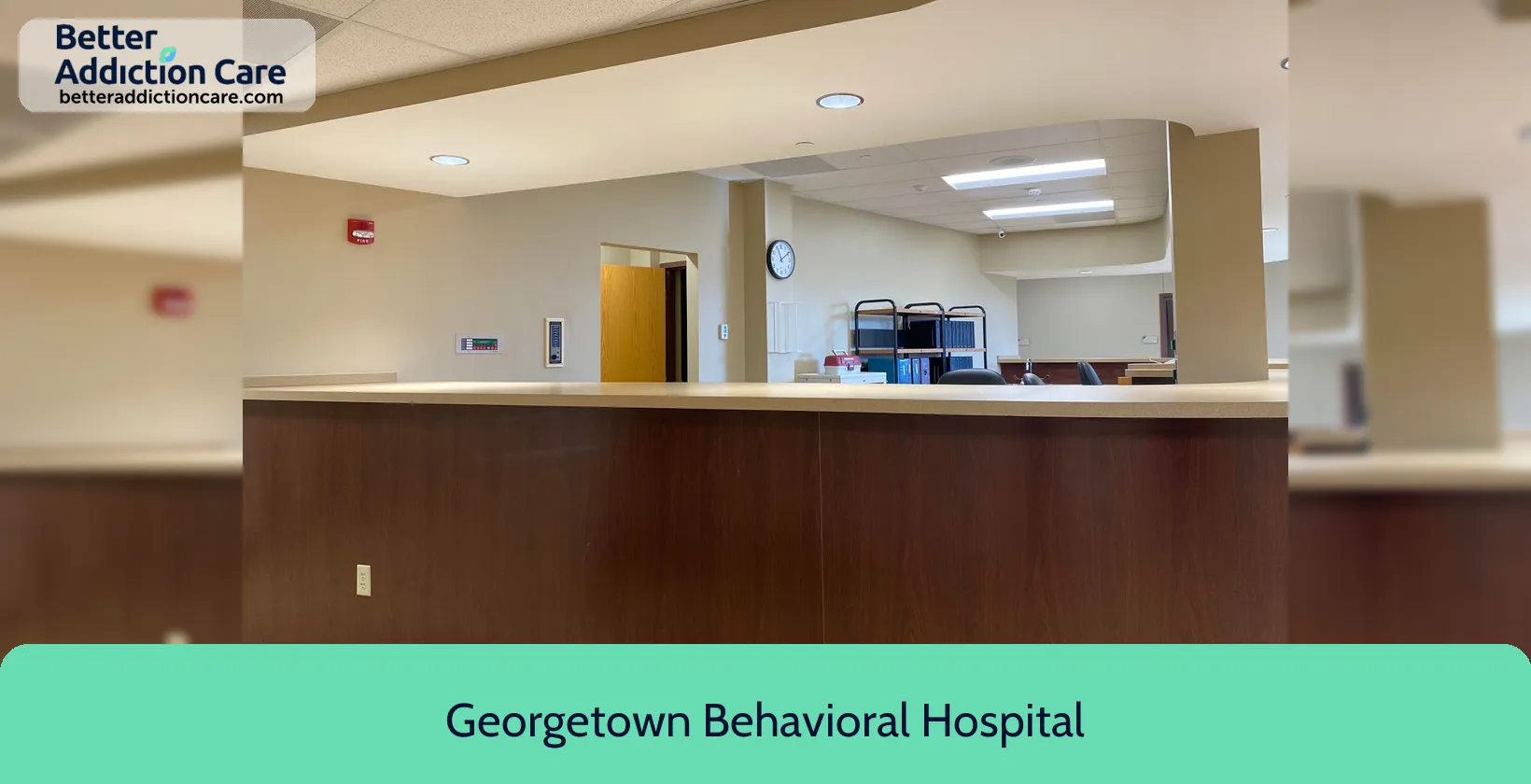Georgetown Behavioral Hospital
Overview
Georgetown Behavioral Hospital is an mental health treatment center that provides inpatient treatment for men between 18 and 65+ years of age. As part of their special programs, Georgetown Behavioral Hospital treats clients with co-occurring mental and substance use disorders, veterans, and active duty military. To help patients achieve sobriety, Georgetown Behavioral Hospital provides intake assessments. Afterward, patients receive group counseling, cognitive behavioral therapy, and activity therapy during treatment. Georgetown Behavioral Hospital is located in Georgetown, Ohio, providing treatment for people in Brown County, accepting cash or self-payment, medicaid, and medicare.
Georgetown Behavioral Hospital at a Glance
Payment Options
- Cash or self-payment
- Medicaid
- Medicare
- State-financed health insurance plan other than Medicaid
- Private health insurance
Assessments
- Comprehensive mental health assessment
- Comprehensive substance use assessment
Age Groups
- Seniors or older adults
- Young adults
- Adults
Ancillary Services
- Intensive case management
- Case management service
- Court-ordered outpatient treatment
- Family psychoeducation
- Psychosocial rehabilitation services
Highlights About Georgetown Behavioral Hospital
6.56/10
With an overall rating of 6.56/10, this facility has the following balanced range of services. Alcohol Rehabilitation: 8.00/10, Treatment Options: 6.24/10, Drug Rehab and Detox: 6.00/10, Insurance and Payments: 6.00/10.-
Alcohol Rehabilitation 8.00
-
Treatment Options 6.24
-
Drug Rehab and Detox 6.00
-
Insurance and Payments 6.00
Treatment At Georgetown Behavioral Hospital
Treatment Conditions
- Alcoholism
- Mental health treatment
- Substance use treatment
Care Levels
- Hospital inpatient/24-hour hospital inpatient
Treatment Modalities
- Group counseling
- Cognitive behavioral therapy
- Activity therapy
Ancillary Services
Languages
- Sign language services for the deaf and hard of hearing
Special Programs
- Clients with co-occurring mental and substance use disorders
- Veterans
- Active duty military
- Clients with HIV or AIDS
- Clients who have experienced trauma
Get Help Now
Common Questions About Georgetown Behavioral Hospital
Contact Information
Other Facilities in Georgetown
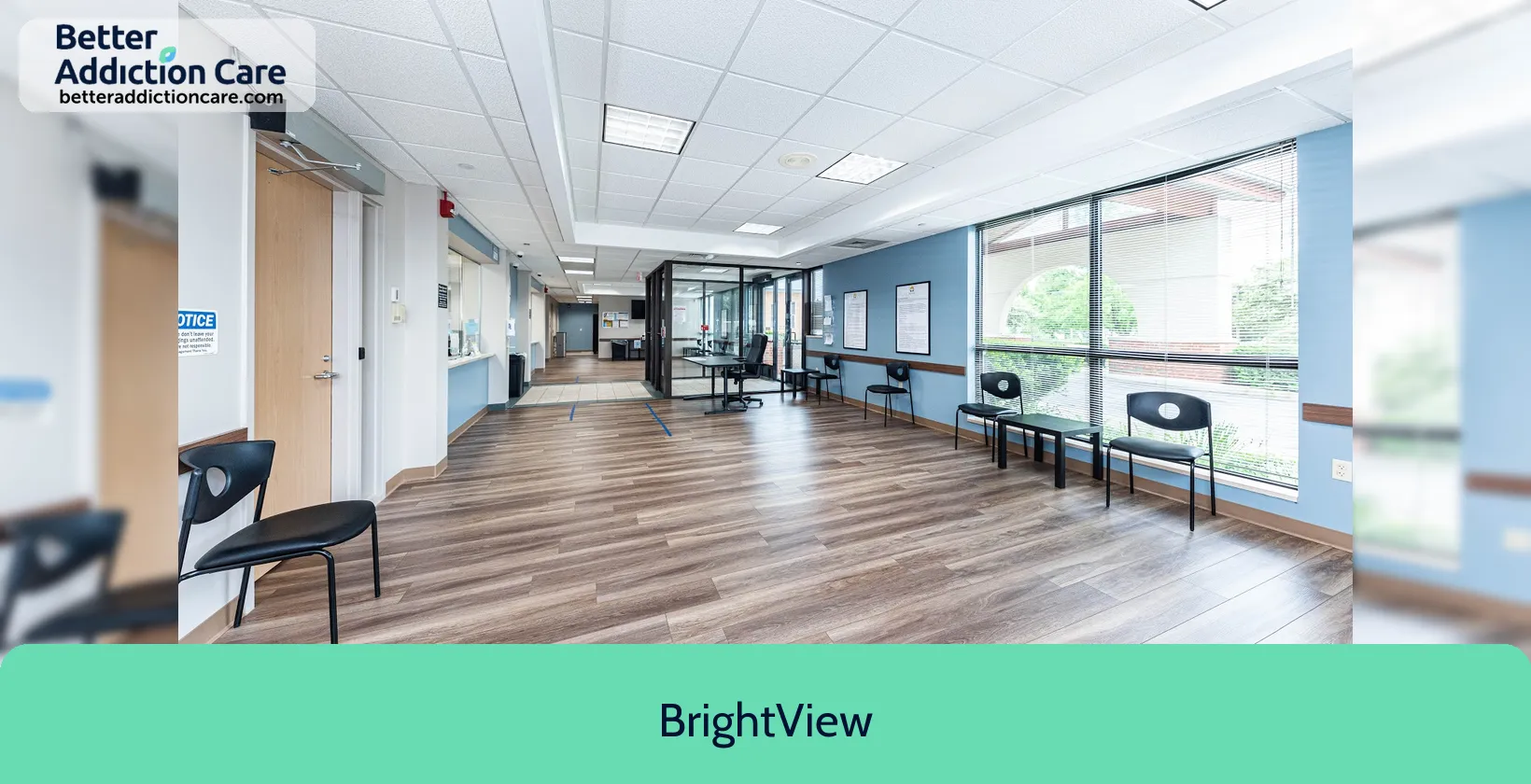
7.68
DISCLAIMER: The facility name, logo and brand are the property and registered trademarks of BrightView, and are being used for identification and informational purposes only. Use of these names, logos and brands shall not imply endorsement. BetterAddictionCare.com is not affiliated with or sponsored by BrightView.
